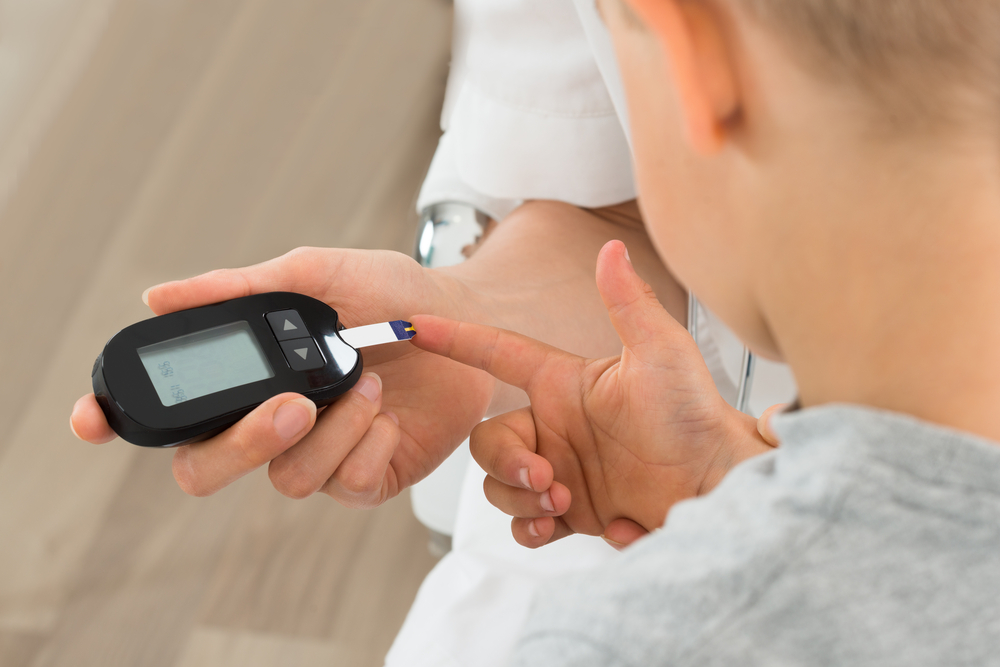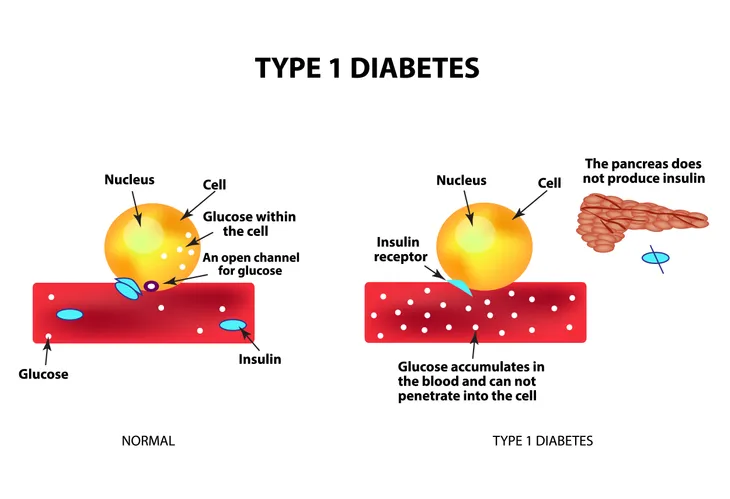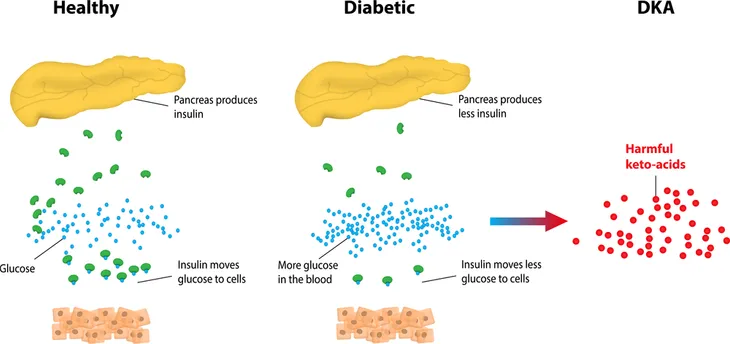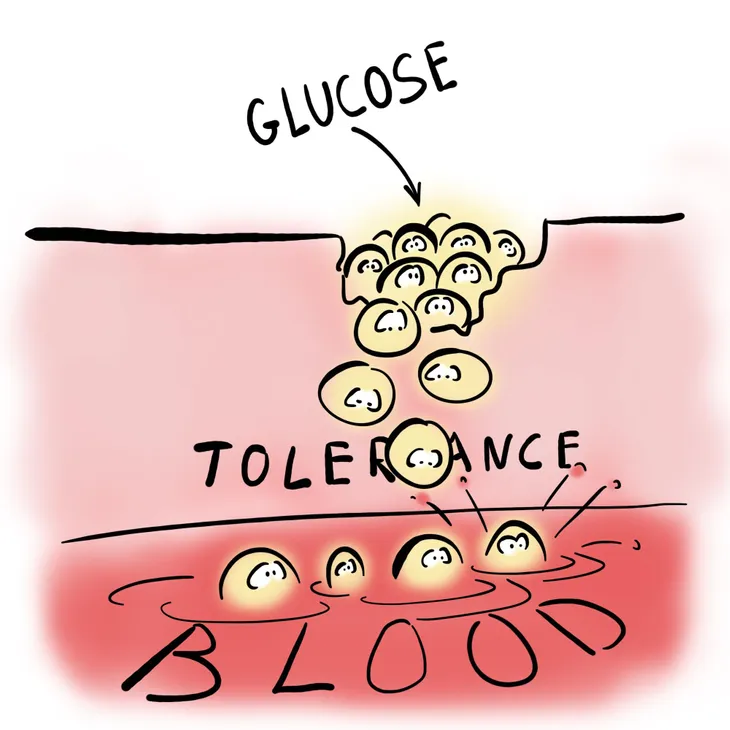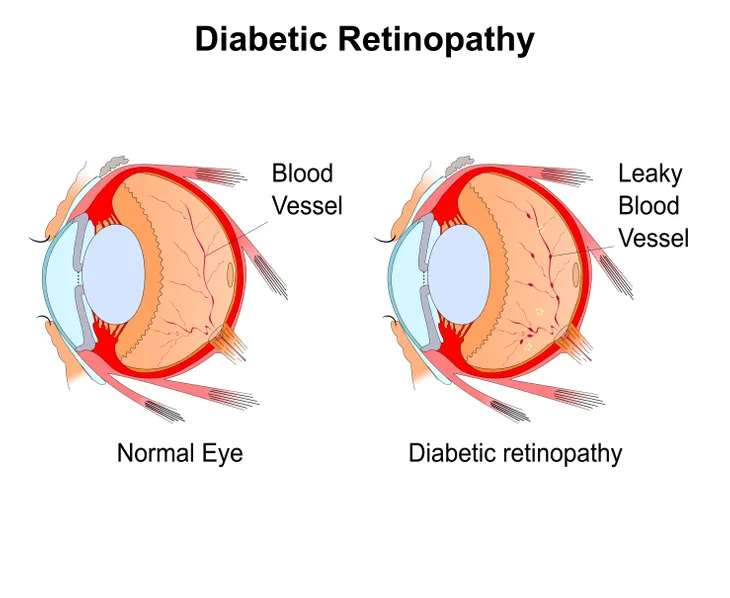Did you know that nearly 30 million people suffer from diabetes in the United States alone? While only 1.25 million of those people have type 1 diabetes – about 5-percent – the severity of complications that can develop from type 1 diabetes makes it just as, if not more dangerous than type 2 diabetes. Type 1 diabetes is the result of your body’s own immune system mistakenly destroying the beta cells in the pancreas causing an inadequate production of the hormone that regulates glucose in the blood. While glucose is required by your body as a main source of energy for the cells that make up your muscles and other tissues, the buildup of glucose in your bloodstream instead of the absorption of glucose by your cells, as happens to type 1 diabetics, can result in potentially life-threatening complications.
Short-Term Complications of Type 1 Diabetes
Over the course of having type 1 diabetes, if you don’t maintain a normal blood sugar level through the use of the hormone that allows your body to use glucose for energy, there are both short and long-term complications that can affect your nerves, heart, blood vessels, eyes, and kidney.
Hypoglycemia
Hypoglycemia happens when your blood glucose levels become very low, usually as a result of having too much of the hormone that regulates glucose in the blood. Hypoglycemia can also result from certain medications like aspirin, which lowers your blood glucose level if you take a dose of more than 81-mg, and alcohol, which keeps the liver from releasing glucose.
There are also three levels of hypoglycemia, depending on how severely your blood glucose level has dropped: mild, moderate, and severe. If treated in the mild or moderate levels, you can prevent far more serious problems. However, the repercussions of severe hypoglycemia can be far more serious, including falling into a coma and even death.
Symptoms of hypoglycemia include:
- feeling shaky and irritable
- sweating
- tingling lips
- feeling weak
- feeling confused
- hunger
- nausea (feeling sick)
Fortunately, as an immediate measure before consulting a doctor, you can bring hypoglycemia back under control by ingesting at least 15-grams of a fast-acting carb (like sugar).
Diabetic Ketoacidosis
Diabetic ketoacidosis (DKA for short) is another serious complication due to a lack of the hormone that regulates glucose in the blood. DKA happens when your body can’t effectively use glucose as a form of energy and instead begins breaking down fat to use as energy. This results in what are called ketones being released into your blood. Too many ketones in your blood make it acidic, which, if left untreated, ultimately results in DKA.
Symptoms of diabetic ketoacidosis include:
- Frequent urination
- Extreme thirstiness
- Abdominal pain
- Weight loss
- Fruity, potentially pear-like smell on breath
- Cold skin
- Confusion
- Weakness
To see if you or someone in your family has DKA, you can either check their blood glucose level (above 250-mg/dl is usually indicative of DKA) or check for ketones with over-the-counter ketone strips (turning deep purple is indicative of too many ketones, and therefore DKA). If either of these two tests indicates you have DKA, see your doctor as soon as possible.
Long-Term Complications
Long-term complications of type 1 diabetes usually develop over a period of at least 10 years and all relate to how blood glucose levels can affect blood vessels. Generally speaking, these long-term complications belong to two categories: microvascular and macrovascular complications.
Microvascular Complications: Eye, Kidney, and Nerve Disease
In your body, you have small blood vessels that can be damaged by poor blood glucose control – as happens as a result of type 1 diabetes. Damaged blood vessels don’t deliver blood like they should, which leads to other problems, specifically with the eyes, kidneys, and nerves.
Eyes: Type 1 diabetes can cause cataracts and/or retinopathy to develop in your eyes. Either one can result in loss of vision.
Kidneys: Poorly controlled type 1 diabetes will likely eventually cause the kidneys to fail and lead to the need for dialysis and/or a kidney transplant. Microalbuminuria tests, which measure how much protein is in the urine, can be used to detect early signs of kidney problems.
Nerves: Nerve damage caused by diabetes, aka diabetic neuropathy, makes it more difficult for tiny blood vessels to nourish your nerves. This can lead to nerves, most commonly in your feet, not functioning properly. This can also lead to such things as erectile dysfunction in men.
Macrovascular Complications: The Heart
Also susceptible to damage caused by type 1 diabetes is your heart. By causing damage to large blood vessels, type 1 diabetes can cause plaque to build up resulting in cardiovascular problems like coronary artery disease with chest pain (angina), heart attack, stroke, narrowing of the arteries (atherosclerosis), and high blood pressure.
Knowledge is Power
While type 1 diabetes is certainly less common than type 2 diabetes, the severity of complications associated with type 1 diabetes, especially if left untreated, makes it just as, if not more dangerous. This is especially true when you consider the fact that type 1 diabetes shares many symptoms with other, less dangerous conditions and illnesses, making it hard to personally diagnose.
Fortunately, while there is neither a form of prevention or proven cure, many of the complications above can be managed or even avoided by noticing symptoms early on and promptly consulting your doctor. Outside of noticing symptoms, proper treatment with and the correct use of the hormone that allows your body to use glucose for energy can also manage or avoid serious complications.
